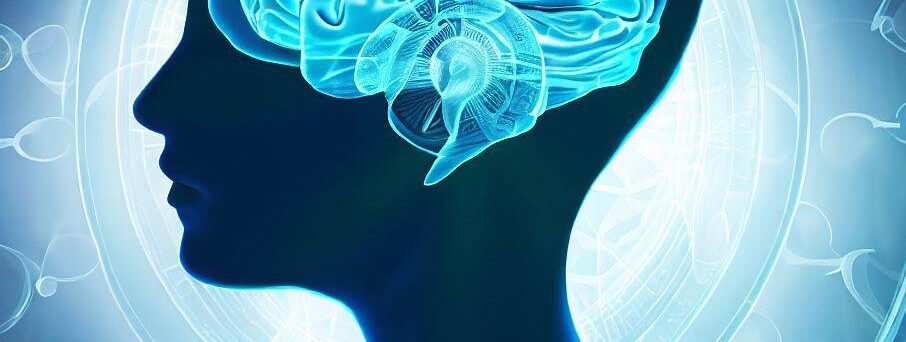Tag: depression
Mental illness affects physical health
Here are some ways in which mental illness can affect physical health:
- Stress: Mental illness can cause chronic stress, which can lead to a number of physical health problems, such as high blood pressure, heart disease, and obesity.
- Sleep problems: Many mental illnesses can cause sleep disturbances, such as insomnia or hypersomnia, which can lead to fatigue, decreased immune function, and other physical health problems.
- Substance abuse: Some people with mental illness may turn to drugs or alcohol as a way to cope, which can have negative effects on physical health, such as liver damage, cardiovascular disease, and cancer.
- Poor self-care: Mental illness can make it difficult for individuals to care for themselves properly, which can lead to neglect of physical health, including poor nutrition, lack of exercise, and failure to seek medical care.
- Chronic pain: Some mental illnesses can cause physical symptoms, such as chronic pain, headaches, and gastrointestinal problems, which can further impact physical health and well-being.
It’s important to note that mental illness and physical health are interconnected, and treating one can improve the other. Seeking professional help and getting treatment for mental illness can help improve both mental and physical health.
Mental illness affects not only a person’s mental health but also their physical health. The two are interconnected, and one can have a significant impact on the other. Mental illness can cause physical symptoms, and physical illness can lead to mental health problems. In this article, we will explore how mental illness affects physical health and what can be done to prevent or manage these effects.

The importance of your mental health
In today’s fast-paced world, it can be easy to prioritize one’s physical health over one’s mental health. Many of us focus on maintaining a healthy diet, staying active, and getting enough sleep, but we often neglect the importance of taking care of our mental well-being. However, it is crucial to recognize that mental and physical health are equally important and interconnected. In this blog post, we will discuss why this is the case and why it is essential to prioritize both mental and physical health.
Firstly, mental and physical health are interconnected. Our mental health can affect our physical health, and our physical health can affect our mental health. For example, chronic physical conditions can lead to depression and anxiety, while mental health problems such as stress and anxiety can lead to physical symptoms such as headaches, muscle tension, and fatigue. Neglecting one’s mental health can have serious physical consequences, and neglecting one’s physical health can have serious mental consequences.
Secondly, mental health is just as important as physical health. Mental health affects every aspect of our lives, including our relationships, work, and overall quality of life. When we neglect our mental health, we can experience symptoms such as anxiety, depression, and stress, which can lead to difficulty functioning in our daily lives. Prioritizing our mental health can help us cope with the challenges of daily life and improve our overall well-being.
Thirdly, taking care of our physical health can also benefit our mental health. Exercise, for example, is not only good for our physical health but can also reduce symptoms of anxiety and depression. A healthy diet can also improve our mental well-being, as certain nutrients such as omega-3 fatty acids have been shown to improve brain function and reduce symptoms of depression. Getting enough sleep is also essential for our mental health, as lack of sleep can lead to anxiety and depression.
Finally, prioritizing both mental and physical health can lead to a better overall quality of life. When we take care of ourselves both physically and mentally, we are more likely to be able to enjoy our lives to the fullest. We are more likely to have the energy to pursue our passions, the ability to form and maintain meaningful relationships, and the resilience to cope with the challenges of life.
In conclusion, mental and physical health are equally important, and neglecting either can have serious consequences. Prioritizing both mental and physical health can lead to a better overall quality of life, improved well-being, and increased resilience in the face of life’s challenges. It is essential to recognize the interconnectedness of mental and physical health and to take care of ourselves in all aspects of our health and well-being.
Preventing and managing the effects of mental illness on physical health
There are several steps that individuals can take to prevent or manage the effects of mental illness on physical health. Here are some examples:
Seek professional help: It’s essential to seek help from a mental health professional if you are experiencing symptoms of mental illness. A mental health professional can provide treatment, support, and guidance to manage symptoms and prevent their negative impact on physical health.
Practice stress-reducing activities: Activities such as meditation, deep breathing exercises, and yoga can help reduce stress levels and improve physical health.
Engage in regular exercise: Regular exercise is an excellent way to manage symptoms of mental illness while improving physical health. Exercise has been shown to reduce symptoms of depression and anxiety and improve overall physical health.
Eat a balanced diet: Eating a balanced diet can help improve physical health while also managing symptoms of mental illness. A healthy diet can improve energy levels, reduce inflammation, and promote overall health.
Avoid substance abuse: Avoiding alcohol and drug use can help prevent the negative impact of mental illness on physical health. Substance abuse can lead to chronic health problems and worsen mental health symptoms.

Mental illness and physical health are interconnected, and one can have a significant impact on the other. Mental illness can cause physical symptoms, and unhealthy behaviors, and weaken the body’s immune system, making individuals more susceptible to illnesses.
However, there are steps individuals can take to prevent or manage the effects of mental illness on physical health, including seeking professional help, practicing stress-reducing activities, engaging in regular exercise, eating a balanced diet, and avoiding substance abuse. By taking care of both mental and physical health, individuals can improve their overall quality of life.
